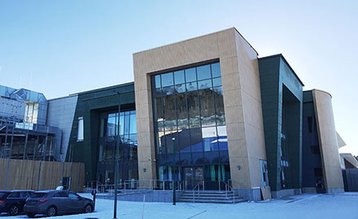After years of quietly working in the shadows, keeping things going and supporting the gradual move to digitisation, the data center industry now finds itself thrust into the spotlight. Global governments have classed data centers as critical infrastructure - expectations have never been higher. Data center operators have an important role to play in supporting customers, from critical healthcare providers, to video conferencing, streaming and social media services, as they meet their customers’ increasing demands in this time of crisis. We are also an essential part of the robust digital infrastructure that will be the foundation of the ‘new normal’ once we move beyond this crisis period.
Protect our people: maintain our service
Today, job number one is to maintain the high standards of service our customers expect though the current crisis. Their digital infrastructure is essential to their business and often that of their customers too. We must ensure that their equipment is secure, and that the power, cooling and auxiliary services upon which it depends are uninterrupted. We must do this whilst protecting the people who work for us and with us and do what we can to mitigate the spread of the virus.
We implemented our Business Contingency Plan in early March in response the Covid-19 pandemic which established enhanced safety and hygiene procedures to protect our staff customers and communities. These include segregated teams, limiting all but business critical visits to sites and enforcing homeworking for staff where possible.
Building the ‘New Normal’
But there is more to it than simply weathering this storm. The current crisis is rapidly accelerating the digital transformation that was already occurring in many sectors. We are in an age of social distancing which is encouraging many to investigate new ways of working, learning, consuming and going about many aspects of their daily lives. Even as measures are relaxed it seems likely that some elements of social distancing will remain in place for some time. Communication and collaboration using services like Zoom, Microsoft Teams and Google Hangouts are becoming ‘normal’ for business and social engagement. At the end of March, for example, Microsoft saw a record 2.7 billion minutes of Teams video calls in a single day, whilst Zoom had over 4.84 million daily users in the US alone.
The question is, once the crisis has passed, will people go back to the ‘old’ way of doing things? Or will the convenience, immediacy and cost benefits of digital alternatives have been proven to such an extent that they become the new normal?
This comprehensive digital transformation may be one of the lasting impacts of the Covid-19 pandemic and will drive significant change in the way we manage digital infrastructure.
With many digital services now operating continuously at or above their usual peak demand levels, it is clear that more capacity is needed. So far, the internet has met the challenge of increased demands; communications network, cloud service providers, and streaming businesses among others, have all seen huge spikes in traffic, but have mostly coped. But if these levels become the norm (Gartner research shows 74 percent of CFO’s plan to shift some previously office-based workers to permanent remote working even after the crisis has passed) then additional capacity will have to be quickly planned in.
Flexibility and rapid scalability have also been shown to be important in meeting increasing demand. For many it has proven the value of cloud-first or hybrid approaches and it is likely that these will be further driven by these experiences. Both these scenarios suggest an immediate need for more data center capacity and co-location providers who can deliver it rapidly where it is needed.
As a result of Covid-19 we are seeing a rapid and permanent shift to a more digital economy which will transform data centers into the factories of the 4th Industrial Revolution. They will become the engines of growth, and access to the skills, connectivity, compute and storage they offer will be the difference between surviving and thriving for all types of business. As in previous industrial revolutions it will make sense for businesses to outsource the maintenance, management and security of these vital assets to specialists and to benefit from the economies of scale they can provide.
The sustainable revolution
The important difference in this new digital revolution is the opportunity is to do all of this in sustainable ways that protect the planet. Data centers already consume huge amounts of energy, and the post-pandemic growth will multiply this further. But newer designs, innovative technologies and sourcing electricity from 100 percent renewable, zero-carbon, sources will mitigate this impact. As data centers are recognized as the essential foundations of the global economy, then public, political and regulatory scrutiny will ensure that they meet the most stringent ecological standards. The best will support digital services which are not only much less carbon-intensive than the activities they replace, but close to net-zero carbon contributors themselves.
Sustainability is not simply a message; it must be fundamental to the operations and mission of the company overall. We have been using renewable energy since 2004 and have invested in innovations that reduce the carbon footprint of our facilities and contribute to more sustainable communities. In 2016, our own research showed that environmental performance was bottom of the list of purchase considerations. Two years’ later it had become the 4th most important consideration. Now is not the time to ease up on this progress, in fact, today’s circumstances provide the opportunity to ensure it remains top of the agenda.
People, governments and organisations around the world have already shown that with ingenuity, perseverance and flexibility we will overcome this crisis. Difficult decisions and big changes are being made every day as we fight the pandemic, and these have led to some significant shifts towards a more digital world. We in the data center industry are humbled to find ourselves at the heart of the global response to Covid-19 and are committed to living up to our status as critical infrastructure.
As an industry, we are conscious that an emerging, digital world will depend on us like never before. It will mean higher profile, more scrutiny, and demand more transparency of our facilities, practices and personnel. This means continued innovation in technology and design, listening to and advising customers to create the most sustainable solutions, and increasingly to communicate, educate and build understanding around managing data resources efficiently. The ‘New Normal’ should be digital and sustainable, but it demands more than simply maintaining our current status. We need to be proactive in making the changes we need to deliver this exciting new world. We welcome this new responsibility and we are ready for it as we look to what comes next.





